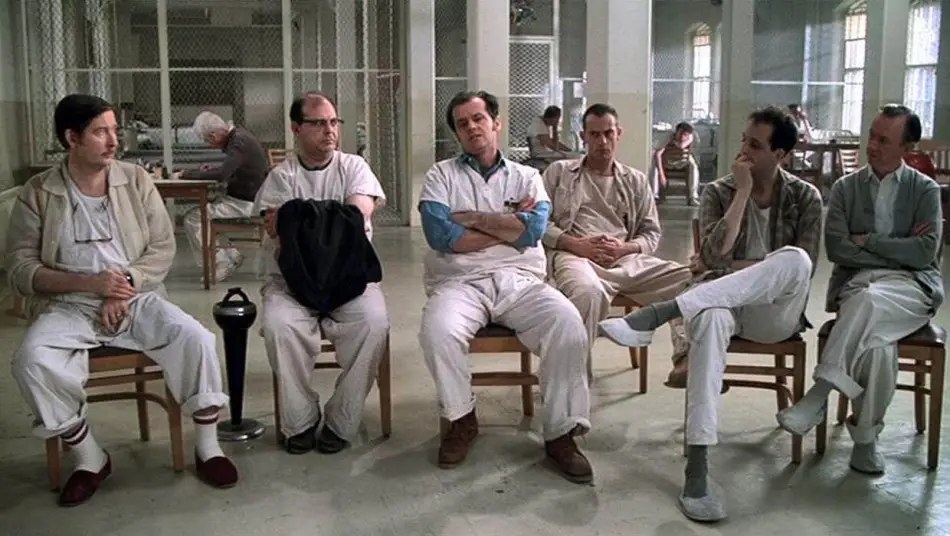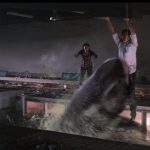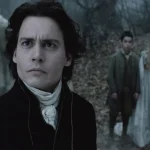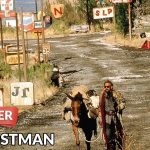One Flew Over the Cuckoo’s Nest (1975)

“One Flew Over the Cuckoo’s Nest,” directed by Milos Forman and released in 1975, is a seminal film in the canon of American cinema. Based on Ken Kesey’s 1962 novel of the same name, the film stands out for its powerful critique of institutional power and its exploration of mental health issues. With a screenplay adapted by Lawrence Hauben and Bo Goldman, “One Flew Over the Cuckoo’s Nest” offers a compelling examination of individuality, freedom, and resistance within the confines of a psychiatric institution. The film’s critical success, including winning the “Big Five” Academy Awards—Best Picture, Best Director, Best Actor, Best Actress, and Best Screenplay—cements its status as a classic and influential work.
Set in a psychiatric hospital in the 1960s, “One Flew Over the Cuckoo’s Nest” follows Randle P. McMurphy (Jack Nicholson), a rebellious and charismatic convict who feigns insanity to avoid a prison sentence and instead serves his time in a mental institution. McMurphy’s arrival at the hospital sets the stage for a dramatic clash between his free-spirited individuality and the oppressive, dehumanizing system represented by Nurse Ratched (Louise Fletcher).
The narrative unfolds with McMurphy’s efforts to challenge the hospital’s rigid and controlling environment. His presence injects a sense of vitality and defiance into the lives of the institution’s patients, who have largely resigned themselves to the institution’s rules and routines. McMurphy’s antics and resistance, which include organizing gambling games and planning an outing for the patients, serve as a form of rebellion against the institution’s authoritarian control.
The central conflict of the film is between McMurphy and Nurse Ratched, who epitomizes the institution’s cold, bureaucratic authority. Nurse Ratched’s manipulative and punitive measures represent the dehumanizing effects of institutional power. As McMurphy’s influence grows among the patients, Nurse Ratched intensifies her efforts to subdue him, leading to a series of escalating confrontations.
The film reaches a dramatic climax with a particularly intense sequence involving electroconvulsive therapy (ECT) and a final act of rebellion that has profound consequences for McMurphy and the other patients. The resolution of the narrative underscores the film’s themes of freedom, conformity, and the struggle for individuality.
The film’s strength lies in its complex and richly developed characters, brought to life by exceptional performances from the cast.
Randle P. McMurphy (Jack Nicholson): Jack Nicholson’s portrayal of Randle P. McMurphy is one of the most iconic performances in film history. Nicholson’s McMurphy is a larger-than-life character, exuding charisma, defiance, and a sense of rebellious freedom. Nicholson’s ability to convey both the humor and the underlying tragedy of McMurphy’s situation makes the character deeply compelling. His performance earned him the Academy Award for Best Actor and remains a defining role in his career.
Nurse Ratched (Louise Fletcher): Louise Fletcher’s performance as Nurse Ratched is a masterclass in portraying a character who is both chilling and multifaceted. Nurse Ratched’s calm demeanor and bureaucratic control mask a deeply oppressive and manipulative nature. Fletcher’s portrayal earned her the Academy Award for Best Actress and is memorable for its subtle yet powerful depiction of institutional authority. Her interactions with McMurphy drive much of the film’s tension and conflict.
Chief Bromden (Will Sampson): Will Sampson plays Chief Bromden, a Native American patient who initially pretends to be mute and deaf. Sampson’s portrayal of Chief Bromden adds depth to the film’s exploration of identity and personal agency. The character’s eventual role in the story’s resolution is pivotal, and Sampson’s performance adds a layer of poignancy to the narrative.
Other Key Characters: The supporting cast, including Danny DeVito as Martini and Christopher Lloyd as Billy Bibbit, contributes significantly to the film’s rich ensemble. Their performances help illustrate the diverse experiences and struggles of the patients within the institution.

Milos Forman’s direction in “One Flew Over the Cuckoo’s Nest” is characterized by its sensitivity and insight into the human condition. Forman’s approach to the material balances realism with emotional depth, creating a film that is both thought-provoking and deeply affecting.
The film’s visual style reflects the sterile, oppressive environment of the psychiatric hospital. The use of natural lighting and documentary-style cinematography enhances the film’s sense of realism and immerses the audience in the world of the institution. The set design and costuming contribute to the film’s depiction of institutional dehumanization and control.
The use of close-ups and tight framing focuses on the characters’ expressions and emotions, heightening the film’s psychological intensity. Forman’s direction ensures that the film’s themes are conveyed powerfully through both visual and narrative elements.

“One Flew Over the Cuckoo’s Nest” explores several profound themes through its narrative and characters:
Individuality vs. Conformity: The film’s central theme is the struggle between individuality and conformity. McMurphy’s rebellion against the institution’s rigid rules represents a broader conflict between personal freedom and societal control. The film examines the ways in which institutions seek to suppress individuality in favor of conformity and control.
Power and Authority: The clash between McMurphy and Nurse Ratched symbolizes the broader struggle between individual autonomy and institutional power. Nurse Ratched’s character embodies the oppressive and dehumanizing effects of authority, while McMurphy represents a challenge to that authority and a quest for personal freedom.
Mental Health and Dehumanization: The film critiques the treatment of mental health patients within institutional settings. It exposes the ways in which psychiatric institutions can dehumanize and control individuals, reducing them to mere objects of treatment rather than recognizing their inherent humanity and individuality.
Liberation and Sacrifice: The theme of liberation is central to the narrative, as McMurphy’s actions inspire the other patients to challenge their own limitations and seek freedom. The film also explores the idea of sacrifice, particularly through McMurphy’s ultimate fate and Chief Bromden’s act of liberation.

Released in the early 1970s, “One Flew Over the Cuckoo’s Nest” reflects the cultural and social climate of the time. The film’s critique of institutional authority and its focus on mental health issues resonate with broader societal concerns about freedom, individuality, and the treatment of marginalized groups. The film’s release during a period of significant social change and questioning of established norms adds to its impact and relevance.
The film’s portrayal of mental health institutions and its critique of authority are aligned with the growing awareness and reform movements related to mental health care during the 1960s and 1970s. “One Flew Over the Cuckoo’s Nest” contributes to these discussions by highlighting the need for more humane and respectful treatment of individuals within institutional settings.
“One Flew Over the Cuckoo’s Nest” (1975) is a landmark film that offers a powerful and thought-provoking examination of individuality, freedom, and institutional power. Directed by Milos Forman and featuring outstanding performances by Jack Nicholson and Louise Fletcher, the film combines compelling storytelling with deep thematic exploration. Its portrayal of the struggles faced by individuals within a dehumanizing psychiatric institution continues to resonate with audiences and remains a significant contribution to the discourse on mental health and institutional authority. As a classic of American cinema, “One Flew Over the Cuckoo’s Nest” endures as a poignant and influential work that challenges viewers to reflect on the nature of freedom, conformity, and the human spirit.










